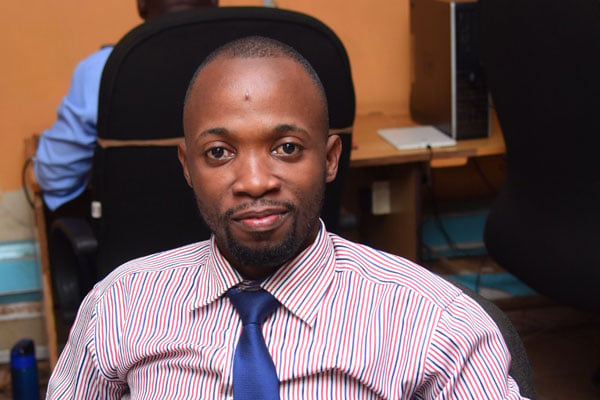Prime
Over 7,000 Saccos miss PDM money

Prime Minister Robinah Nabbanja (right) during the launch of the disbursement of the PDM funds at her office in Kampala on October 11, 2022. PHOTO | PETER SERUGO
Only 3,200 out of the targeted 10,594 Saccos have been cleared to receive Parish Development Model (PDM) cash after meeting requirements as outlined under the implementation guidelines, the government has said.
Each of the approved Saccos would receive Shs25m revolving fund during the first quarter [from July to September], Shs25m for the second quarter [October to December] and another Shs50m for the third quarter, according to Prime Minister Robinah Nabbanja.
“Today, we launch the disbursement of PDM funds to the ready Saccos. We had hoped the funds would be disbursed at once when all Saccos are ready but we have decided to start with those that comply with all the criteria,” Ms Nabbanja said.
“Out of the 6,219 PDM Saccos with complete submissions, disbursement modalities for Quarter One have already been finalised to the first 3,237 compliant Saccos after due diligence was conducted. These are in 55 out of the 77 local governments with complete submissions. Other Saccos shall be receiving the funds as they get ready,” Ms Nabbanja said during a media briefing in Kampala yesterday.
Ms Nabbanja said all the ready Saccos are to receive the funds directly to their bank accounts.
The government has so far released Shs80.92b to cater for the first quarter, while Shs1.05 trillion was earmarked as revolving funds to the PDM Saccos in this Financial Year 2022/2023.
During yesterday’s meeting, the premier approved disbursement of funds to three Saccos from Otuke, Butaleja and Lira districts as model Saccos.
She cautioned beneficiaries against misusing the funds, saying any form of corruption or misuse shall be severely punishable.
“I call upon all our people to recognise the unique opportunity that has been provided by the government at the parish level. You must jealously guard this money, these funds are for people and they are going to be managed by the people,” Ms Nabbanja said.
The PDM programme, which was launched by President Museveni in February, aims to lift 17.5 million Ugandans in 3.5 million households out of poverty through the total transformation of the subsistence households into the money economy.
The programme is government’s latest drive toward poverty alleviation. Initially, the country’s nearly 10,600 parishes were set to get seed money of Shs100 million per parish in one single release.
Opposition speaks out
Weighing in on the matter, some Opposition MPs, however, castigated the government programme and called it a mockery of desperate Ugandans suffering hard economic times amidst high rising commodity prices.
They say Shs25m per Sacco is a mere drop in the ocean and will not make any impact.
“From the time I heard the chief executive say they sent only Shs17m instead of 100m, it was very clear to me that the PDM was a pipe dream. It was economic sloganeering to blame Ugandans for their poverty. The President wanted to tell Ugandans that we gave you money but you did not get rich. Just like all other government programmes that flopped, including Bonna Bagaggawale, it wasn’t meant to work,” Mr Mathias Mpuuga, the Leader of the Opposition in Parliament and also the Nyendo-Mukungwe Division MP, said.
He added that given the hard economic times, the revolving fund will not serve any purpose since the money will never be recovered.
“The government is now informing the country that some money meant for sharing has been released. Anti-poverty programmes are supposed to be well thought through,” he said.
Buhweju MP Francis Mwijukye was pessimistic that the programme would not benefit all Ugandans since it has been politicised.
“People think it is NRM money and recovering it will be very hard since many people think it is their reward for supporting the party and at the end of the day, it will not cause the desired impact.
He said disbursing the funds in portions would create confusion in terms of accountability.
Butambala MP Muwanga Kivumbi said they are going to push the government to consider allocation of PDM resources in accordance with the population density.
“We have to address inequality in resource distribution, especially when you flag off PDM. You realise that in the programme, the central region is going to receive the least amount of money despite having the largest population simply because our parishes are few, our sub-counties are too big and they are having the largest population,” he said.
“Regions with relatively smaller numbers of people are going to get huge amounts of money and this is not fair,” he said.
Speaking at the launch, the deputy Secretary to the Treasury, Mr Patrick Ocailap, said some of the Saccos that didn’t qualify lacked bank accounts.
Others had inconsistencies in names and had not signed the Parish Revolving Fund (PRF) agreement. However, he assured beneficiaries of non-compliant Saccos that they are to receive funds at compliance.
“Those groups that shall be approved by the end of this week shall be receiving Shs50m in the coming week; this will include Shs25m for quarter one and another Shs25m for quarter two,” Mr Ocailap explained.
One of the guidelines for a Sacco to qualify for PDM funds is that it must be in a parish that corresponds to one on the list of gazetted parishes.
It should be registered under the Cooperative Societies Act, have a bank account and it must have signed a PRF financing agreement with the Local Government.
The national coordinator for PDM, Mr Ssozi Galabuzi, told this publication that although the disbursement of the funds has been initiated, members of the Saccos may not be able to access it unless particular conditions are met by the group.
“I issued a circular to all Saccos on the utilisation of funds. Some of the conditions include evidence of training for the PDM sacco executive and enterprise members, and evidence of the Saccos’ first general meeting,” Mr Galabuzi said.
“In the circular, I gave an ultimatum of November 30, so beyond this date, we should be able to see people utilising this money. There are people complaining that the money is released when the season is ending, but PDM is not all about crops; we also have animal rearing (cattle, piggery, among others), as well as fish farming.
Last month, this publication reported that some PDF cash had been misappropriated by government officials at the various districts, but the prime minister said the government has decided to channel the funds directly to the Saccos’ bank accounts instead of respective local government accounts.
The guidelines for receiving the money
According to the earlier guidelines issued by the Ministry of Local Government, all processes and transactions shall be computerised/digitalised using a dedicated Parish Revolving Fund (PRF)-ICT platform. This would make it easier to monitor the performance of the fund.
The guidelines further stipulate that the parish revolving fund is integrated within the existing structures of the government, and states that the chief administrative officers and the town clerks are the accounting officers for the parish revolving fund at the district and municipality levels respectively, while in the case of Kampala Capital City Authority (KCCA), the executive director is the accounting officer.
The guidelines say the funds will be appropriated directly to implementing districts, cities, municipalities, and KCCA, earmarked for individual parishes and that the entities in turn sign financing agreements with each parish-based beneficiary approved for funding. The staff will provide the necessary technical guidance and support to the beneficiaries in the course of implementation.
“The loans shall be appraised by the parish development committee, the sub-county planning committee and disbursement approved by the CAO/town clerks/ KCCA executive director.
Parish revolving funds will be channeled directly from the Treasury to beneficiary accounts that will be opened in regulated financial institutions to ensure households in the parish are able to save, borrow and invest,’’ the guidelines read.





